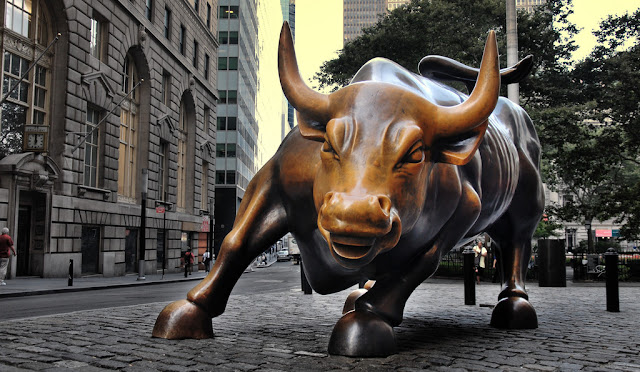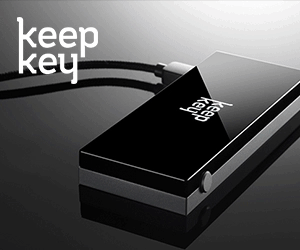DISCLOSURE: This post contains sponsored ads and I will be compensated if you make a purchase after clicking on my links.
WALL STREETLocated in lower Manhattan, New York City. Along a half mile long strip referred to as the financial district of America lies "WALL STREET".
America's major stock exchanges, a bountiful of headquarters to the largest financial & brokerage institutions in the country all reside here.
Books, movies and stories the likes none other. Wealth built and lost. Lives & legacies sprouting life of their own just as the $$$ signs have blown swiftly along this street for centuries.
Wall street.....yes. I'm sure you've heard some of the stories!
The New York Stock Exchange (NYSE) & National Association of Securities Dealers Automated Quotations (NASDAQ) are just a few of the renowned exchanges that are well established here.
Wall streets central role, representing the backbone of American economic culture. An intense caterer to the billions if not trillions of dollars in high financial investments 5 days a week.
It is this massive fluctuation of stocks each day that most interest investors and brokerage alike. Where buying & selling of major outstanding shares can make or break individual investors and companies. This intricate maze of regulations, speculation and estimation into the worlds business mechanics, engulfs one hopes to increase their cash flow within their portfolio.
It comes down to education........studying trends, past actions, research and more research. It's that gut feelings, knowing a little more about a part of that business that someone else missed. And there's a place to get all that in, call the "stock market"
STOCK MARKET
Also known as equity or shares market, as mentioned in an earlier post, in it's simplicity.......the buying & selling (trading) shares of stocks & bonds in a company. Giving private & public companies admission to additional capital through stock exchanges.
These exchanges at one time use to trade through paper tickets and the investors would receive a certificates of stock from the company they've invested in. Due to technological advances certain indices like the NASDAQ are now traded completely digitally.
Companies do not always do well. This is where the different types of exchanges come into play. As we began to identify a few of the different index institutions. Let's take a look at these initial phases into the process of playing the markets.
For instance, a private company is looking to expand it business. There is a process involved, a kind of two step stage for which it must proceed.
Primary Market or New Issues Market (NIM) in where a private company decides to get listed (U.S. Securities and Exchange Commission S.E.C.) on the exchanges enabling them to sell stocks to the public for the first time. Thereby issuing it's first shares in an Initial Public Offering, IPO aka "Going Public". Investors & investment banks purchase these shares at a price directly from the issuing company.
Within this primary market there is what is known as "Rights Issues". And is where shares are first offered to investor at a reduced price who have already purchased shares. They are, let's say, privileged.
Next, we have something called "Private Placement", the company issues a limited amount of stock privately to a limited number of qualified investors. Usually this happens if a company is newer, and has not yet met public listing requirements, or simply just wants to remaining private.
Yet, another preferred investor privileged offer is called similarly "Preferential Allotment". Same as with private placement issued funding but with a different set of standards. Company acts vary per funding practices.
2nd - Secondary Market
Referred to as the secondary market, shares are brought from a second party involvement. Like a broker, seller and of course off the stock exchange.
Broken down further into two distinctive markets.
1) AUCTION MARKET
Within the secondary market process, a trade is established when the buyer set their highest price and the seller has set their lowest price. A bid is agreed upon and a trade is contrived.
2) DEALER MARKET
National Association of Securities Dealers Automated Quotations or NASDAQ is the shiny example of an dealer market. Is where trader who act on their own accounts and not a third party, buy & sell within specialized commodities. The ability to move swiftly on a trade when a value is met is the advantage to these market makers.
INDEX
How does one value a companies stock in order to decide which to invest?
Index or indices, simply is a list. Life isn't that complicated so let's just not make it that way. It's a list of public traded companies that can have their stocks performances track by selected groups. Some groups are tracked by payout (dividend) history, company growth or industry associations. It may be a combination of values. As we move forward, we will mostly identify with the more known indices. Yet, understand there are many many of them out there and worldwide.
There needs to be a way in order to measure what the value of the stock market is. What baseline are companies gauged at so that the public, investors, regulators and financial institutions have a general knowledge of certain segment within the business world.
We find different stock indices widely followed, such as the S&P 500 index, the Dow Jones Industrial Average index, the Nasdaq index or the Russell 2000. They all measure the changes (value) in different portfolios of securities.
This is done through a weighted average structure. Involving a set of mathematical values, so as the values in this group of stocks changes so will the indicators. Whatever percentage the index does, whether it goes up or down, so does the total value of that stock of those particular group of securities.
When talking stocks, 1 point represents $1.00. Whereas within the context of the Bonds market, the price is valued to a percentage of $1000.00. 1 point is really the equivalent to $10
Index Follows
Dow Jones Industrial Index 30 Major US companies
S&P 500 500 Major US companies
Nasdaq 5000 Tech stock
Market-Value Weighted or Capitalization-Weighted Index
- Size of companies weight in (influence) more over the index than smaller companies when factoring value with the markets.
Price-Weighted Index
- Components (shares) with a higher prices receive a greater (influence) weight over the index. Meaning, the focus is on the price of each shares as oppose to the companies size.
EXCHANGES
NYSE - New York Stock Exchange
Is the largest stock exchange in the world. Founded around 1792, near the corners of Wall Street & Broad, a group of merchants would meet to trade bonds & stocks of the day. Story goes they would meet near a tree as would many trader & barters at that time would do. Around 1817 this group rented a building on Wall Street which would become the 1st New York Stock exchange building.
National Association of Securities Dealers Automated Quotation
With no physical trading floor, it's computers opened in 1971, the NASDAQ is a digitized marketplace for issuing, selling & buying of securities especially in the Hi-technology industry. Including those of the likes of Facebook, Amgen, Apple, Amazon, Netflix & Google. F.A.A.A.N.G. among the technology & biotech giants.
Dow Jones Industrial Average
Founded in 1896, created by a journalist editor Charles Dow named along with statistician Edward Jones. This indices 30 large publicly owned U.S. companies.
STANDARD & POOR'S (S&P) 500
S&P (S&P) 500 Index is one such index which combines the top 500 U.S. stocks together into an index value. So over time investors can look at the fluctuation in those particular markets.
Russell 3000
The Russell 3000 Index is comprised of the 3,000 largest and most liquid stocks based & traded in the U.S. Russell 2000 consist of 2000 small-cap companies. While the Russell 1000 consisting of the 1000 largest market-cap companies.
Did you know:
- Even though the New York Wall Street financial district is today, the hub of trillions of dollar cycling through it system. It was not always that manner, in fact, America's 1st official stocks trading post was not even in New York. It is said to has been established in Philadelphia in 1790. Further more, America was not the 1st to set-up the markets. That title, history tells us belongs to Antwerp, Belgium around 1460.
- The NASDAQ at one time trade Over-the- Counter (OTC) stocks. OTC is another name for penny stocks. Now the home of some of the worlds most sophisticated Hi-tech companies. It certainly has come a long way.
- You've heard the saying......It's a bull or bullish market, maybe it's a bear or bearish market. They have become synonymous with the stock market for decades. If you never knew why, here what I dug up.......
First off, bears are represented as slow moving, sluggish or dull. The bear also strikes it's paws in a downward motion doing battle. Whereas bulls are more lively, spunky and alert. In battle, the bull hooks in an upward motion.
It's these terms that reflect how the stock market is performing. The BEAR market is in a decline or downward trend. Leaving the BULL market in an upward or rising trend.
And now you know!
REAL TALK
Copyright © 2017 Andrew Hayes All Rights Reserved
DISCLOSURE: This post contains sponsored ads and I will be compensated if you make a purchase after clicking on my links.
















